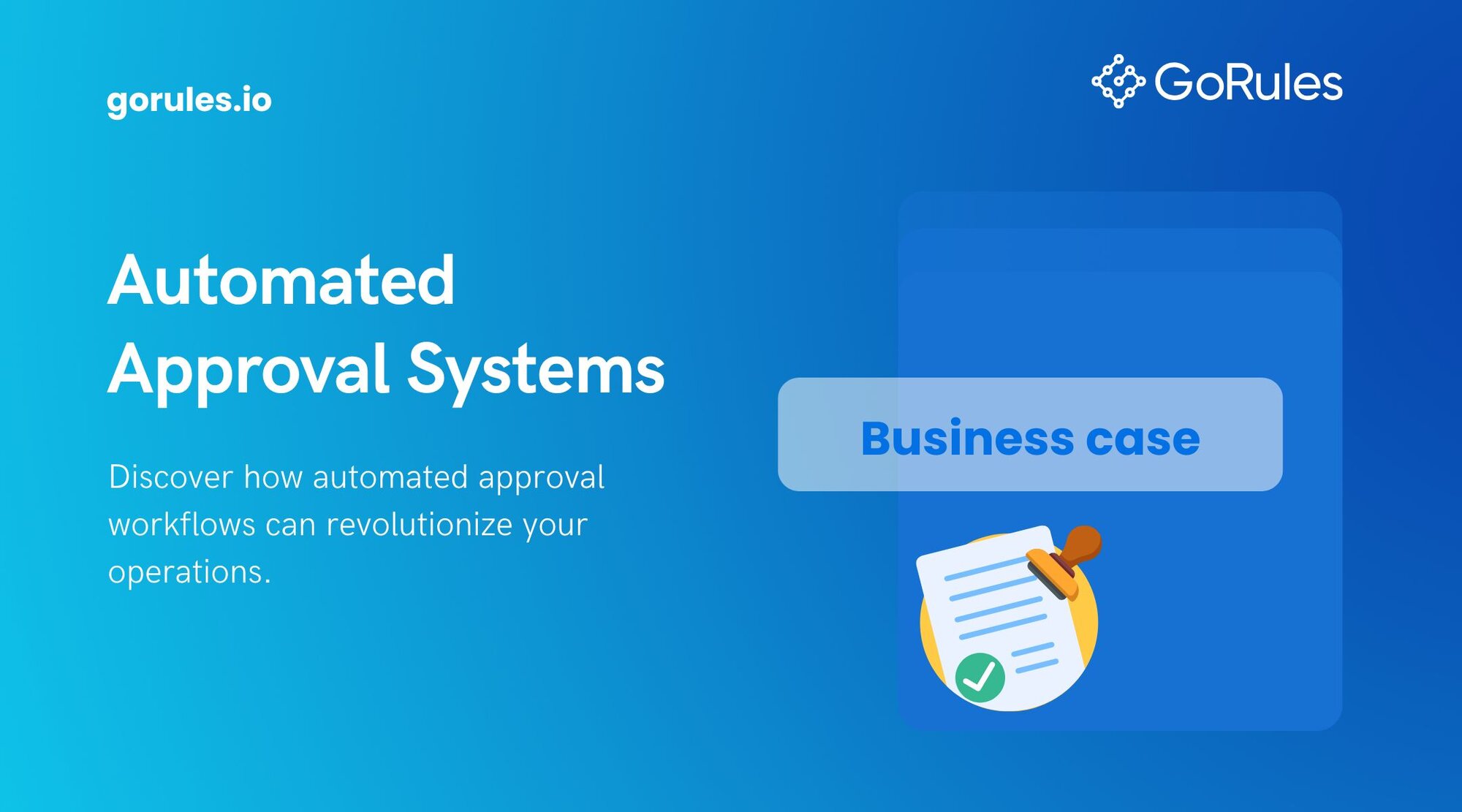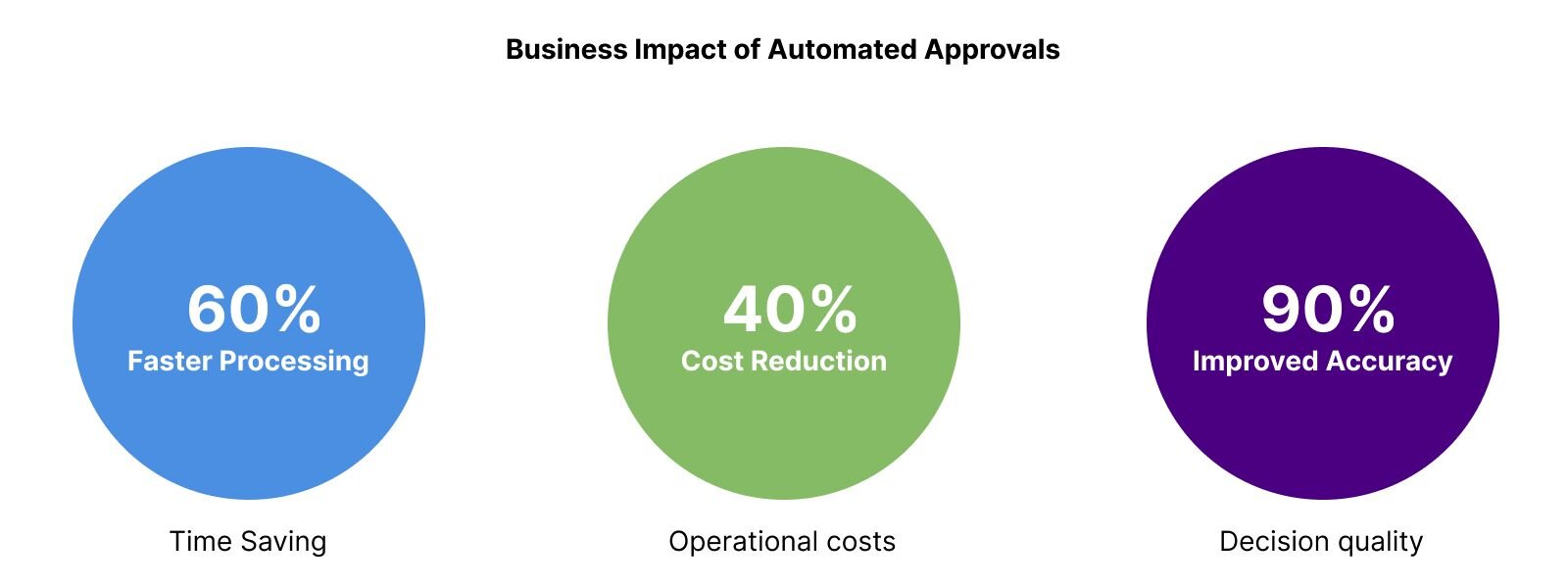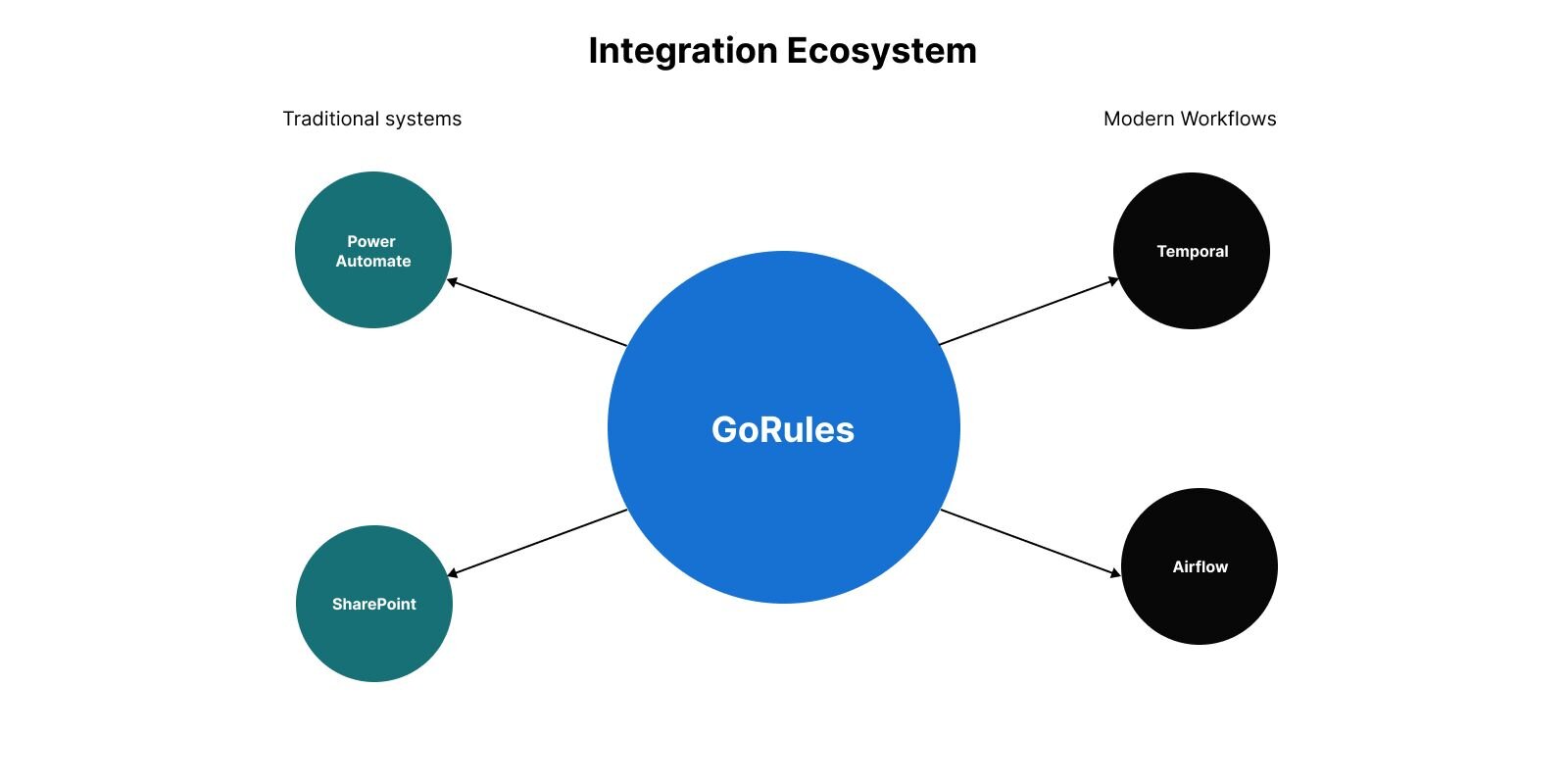Automated Approvals: From SharePoint to Modern Workflows
Discover how automated approval workflows can revolutionize your operations.

The Hidden Cost of Manual Approvals
In the modern business landscape, approval workflows are often the hidden bottlenecks that slow down critical business operations. From purchase orders and expense reports to document reviews and customer onboarding, manual approval processes create friction that impacts both operational efficiency and user experience. Industry reports suggest that employees spend an average of 4 hours per week just managing approvals, while managers dedicate up to 20% of their time reviewing and authorizing requests.
The rise of automated approval systems marks a significant shift in how organizations handle these critical workflows. As businesses seek greater efficiency and consistency in their decision-making processes, automation has evolved from a luxury to a necessity. In this article, we'll explore how modern rule-based approval engines are transforming business operations, enabling organizations to streamline processes, reduce errors, and accelerate business outcomes while maintaining proper controls and compliance.
The Evolution of Approval Processes
Traditional approval processes have long been a cornerstone of business operations, historically relying on paper forms, manual signatures, and in-person meetings. While these methods served their purpose, they came with significant drawbacks: lengthy processing times, documents lost in transit, and the inability to track approval status effectively.
The digital revolution brought the first wave of transformation, moving approvals into email systems and basic workflow tools. Organizations began adopting electronic signatures and digital forms, marking a significant step forward in efficiency. SharePoint and similar platforms introduced structured workflows, helping businesses standardize their approval processes across departments.
Today, we're witnessing the next evolution in approval automation. Modern systems leverage advanced business rules engines, artificial intelligence, and sophisticated workflow automation tools to create dynamic, intelligent approval processes. These solutions don't just digitize existing workflows - they fundamentally transform how organizations approach approvals, offering real-time processing, adaptive routing based on business rules, and seamless integration with existing enterprise systems.
Modern Approaches to Approval Automation
Traditional Workflow Tools
Basic workflow automation tools provide straightforward routing capabilities and simple approval chains. These solutions excel at handling linear processes with fixed steps and clear decision points. While they offer easy implementation and user-friendly interfaces, they often struggle with complex scenarios requiring dynamic routing or sophisticated business logic. Their rigid nature can make it difficult to adapt to changing business requirements.
SharePoint for Approval Workflows
SharePoint, Microsoft's collaborative platform, serves as a foundation for document management and workflow automation in many organizations. Its native approval capabilities are deeply integrated with document libraries and lists, making it particularly effective for:
- Document approvals and reviews
- Content publishing workflows
- Team-based collaboration
- Basic vendor and contract approvals
While SharePoint approval workflows offer robust document-centric features and familiar interfaces, they can be limited in handling complex business logic or cross-platform processes. Organizations often find themselves constrained by:
- Limited customization options
- Fixed routing patterns
- Challenges with multi-stage approvals
- Performance issues with high-volume processes
Power Automate Approval Solutions
Power Automate elevates Microsoft's automation capabilities by providing a modern, flexible platform for creating sophisticated approval workflows. As a cloud-based service, it offers:
- Visual workflow designers for no-code automation
- Pre-built approval templates
- Integration with 300+ business applications
- Mobile approval capabilities
- Real-time notifications and tracking
- OAuth and modern authentication support
Key strengths for approval processes include:
- Quick implementation of standard approval flows
- Easy integration with Microsoft 365 suite
- Built-in mobile experience
- Modern user interface
However, organizations should consider limitations such as:
- Complexity in handling dynamic routing rules
- Challenges with high-volume processing
- Limited options for complex business logic
- Potential costs for premium connectors
Business Rules Engines
Business rules engines represent the most sophisticated approach to approval automation. Unlike traditional tools, they separate business logic from process flow, enabling organizations to modify approval rules without changing the underlying workflow. They excel at handling:
- Complex conditional approvals
- Dynamic routing based on multiple variables
- Real-time decision making
- Integration with multiple systems
- Compliance and audit requirements
This flexibility makes them particularly valuable for organizations with evolving approval requirements or complex regulatory environments.
Transforming Workflows with GoRules
While traditional approval tools focus on routing and task management, GoRules takes a fundamentally different approach by putting business logic at the center of approval automation. This business rules engine approach allows organizations to create sophisticated, adaptive approval workflows that can evolve with changing business needs.
The Power of Business Rules
At its core, GoRules transforms complex approval decisions into clear, manageable business rules. Instead of rigid if-then statements or fixed routing paths, approvals can be based on multiple factors such as:
- Transaction amounts and thresholds
- Risk levels and compliance requirements
- Customer or vendor relationships
- Historical data and past performance
- Department-specific criteria
Versatile Integration Capabilities
GoRules is designed to enhance both traditional and modern workflow systems:
Traditional Systems
- SharePoint workflows for document approvals
- Power Automate for Microsoft ecosystem integration
- ServiceNow for IT service management
- Jira for project workflows
Modern Workflow Platforms
- Temporal for durable execution of approval flows
- Apache Airflow for data pipeline approvals
- n8n for workflow automation
- Camunda for business process orchestration
- Kubernetes-native workflow engines like Argo Workflows
This flexibility allows organizations to leverage GoRules' powerful decision engine regardless of their chosen workflow platform, combining robust business rules with modern orchestration capabilities.
Addressing Common Pain Points
GoRules directly tackles the most challenging aspects of approval automation:
- Dynamic Routing: Automatically determines approval paths based on multiple criteria
- Consistency: Ensures uniform application of approval policies across the organization
- Adaptability: Allows quick updates to approval rules without IT intervention
- Scalability: Handles high-volume approvals with consistent performance
- Compliance: Maintains detailed audit trails and decision logs
Real-World Applications
Organizations are using GoRules to transform various approval processes:
- Financial institutions automating loan approvals based on complex risk assessments
- Manufacturing companies streamlining purchase order approvals across global operations
- Healthcare providers managing treatment authorizations while ensuring compliance
- Insurance companies automating claims approvals with dynamic rule sets
This rules-first approach enables organizations to move beyond simple workflow automation to true intelligent approval processing, whether standalone or integrated with modern workflow orchestration platforms.
The Path Forward
The Future of Automated Approvals
The landscape of approval automation continues to evolve, with business rules engines like GoRules leading the transformation. As organizations face increasing pressure to improve efficiency while maintaining control, the ability to combine sophisticated decision logic with modern workflow platforms has become crucial. Whether enhancing existing SharePoint workflows, building on Power Automate, or integrating with cutting-edge platforms like Temporal, the flexibility to adapt and scale approval processes is now within reach.
Taking the Next Step
For organizations looking to modernize their approval processes, the journey begins with evaluating current workflows and identifying opportunities for automation. Consider these steps:
- Assess your current approval processes and pain points
- Evaluate whether your existing tools can scale with your needs
- Explore how a business rules engine could enhance your workflow platform
- Start small with a pilot project to demonstrate value
- Plan for broader implementation across your organization
Ready to transform your approval workflows? Contact us to learn more about building intelligent, scalable approval processes that grow with your business.
- The Hidden Cost of Manual Approvals
- The Evolution of Approval Processes
- Modern Approaches to Approval Automation
- Traditional Workflow Tools
- SharePoint for Approval Workflows
- Power Automate Approval Solutions
- Business Rules Engines
- Transforming Workflows with GoRules
- The Power of Business Rules
- Versatile Integration Capabilities
- Traditional Systems
- Modern Workflow Platforms
- Addressing Common Pain Points
- Real-World Applications
- The Path Forward
- The Future of Automated Approvals
- Taking the Next Step

Reshaping the Insurance Industry with Steadfast Technologies

Building Python Rules Engine: Lambda and S3



